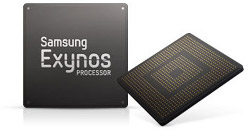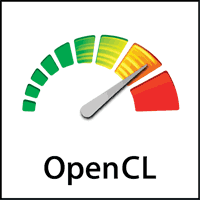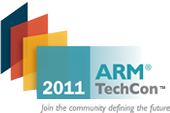Mesa is an open-source implementation of the OpenGL specification that can be used for software emulation or complete hardware acceleration for modern GPUs.The Mesa library is used by a variety of games (e.g. Quake 2.3), libraries (e.g PyOpenGL), science and technical applications and utilities (e.g. xscreensaver). MesaLib requires X11 libraries. I’ll assume those are already cross-compiled here. For this build, I used pre-built X11 libraries found in ALIP (ARM Internet Platform) binaries. I used the method described here and copied the libs in /lib and /usr/lib and header files in /lib/include found in the qemu overo image respectively to /home/jaufranc/edeve/beagleboard/libs/lib and /home/jaufranc/edeve/beagleboard/libs/include. make sure you use the “-d” with cp to avoid copying the symlinks or some symbolic links would point to x86 binaries or files that do not exist. Here are the instructions to cross-compile MesaLib 7.11 for ARM using arm-linux-guneabi-gcc: Download the latest version of Mesa source code: […]
Cross Compiling Boost C++ Libraries for ARM
Boost provides free peer-reviewed portable C++ source libraries. Ten Boost libraries are already included in the C++ Standards Committee’s Library Technical Report and will be in the new C++11 Standard. The Boost C++ libraries are already included in popular Linux and Unix distributions such as Fedora, Debian, Ubuntu and NetBSD and are used by projects such as Python, Xibo, Civilization IV, etc.. Here are the steps to cross-compile Boost C++ libraries for arm using arm-linux-guneabi-g++: Download the source code:
|
1 |
wget http://sourceforge.net/projects/boost/files/boost/1.47.0/boost_1_47_0.tar.bz2/download |
Extract the source code:
|
1 2 3 |
mv download boost.tar.bz2 tar xjvf boost.tar.bz2 cd boost_1_47_0/ |
Bootstrap the code:
|
1 |
./bootstrap.sh |
Modify the configuration file (project-build.jam) to use the ARM toolchain by replacing the line with “using gcc” by:
|
1 |
using gcc : arm : arm-linux-gnueabi-g++ ; |
Install the python development package:
|
1 |
sudo apt-get install python-dev |
Build and install the boost libraries:
|
1 |
./bjam install toolset=gcc-arm --prefix=~/edev/beagleboard/libs --disable-long-double -sNO_ZLIB=1 -sNO_BZIP2=1 |
This was tested in Ubuntu 11.04 (natty) and 10.04 LTS with linaro g++ toolchain. Jean-Luc Aufranc (CNXSoft)Jean-Luc started CNX Software in 2010 as a part-time endeavor, before quitting his […]
Samsung Unveils New Dual-core Exynos 4212 Processor
Samsung unveiled its new Exynos processor this week at Samsung Mobile Solution Forum 2011 in Taipei, Taiwan. The Exynos 4212 is a dual core ARM Cortex A9 processor clocked up to 1.5 GHz and “will improve processing power by 25 per cent and enhance a device’s 3D abilities by a massive 50 per cent” according to Samsung. The processor will also consume 30 percent less power than its predecessor (Exynos 4210) thanks to Samsung new 32nm HKMG process. Finally the company said that the Exynos 4212 will incorporate a rich portfolio of advanced codec accelerators that support digital still images, video recording and play-back at 1080p full-HD resolution, an image signal processor and an on-chip HDMI 1.4 interface. Samsung’s Exynos 4212 processor will sample to select customers in Q4 2011. Samsung also announced a website dedicated to Exynos processors. This website has a lot of information on Exynos 3110 and […]
Select an ARM MCU during Development with Atollic TrueSTUDIO for ARM
Atollic has released the latest version of TrueSTUDIO development tool for ARM, a C/C++ development tool for embedded developer that looks similar to Eclipse. It supports micro-controllers from a number of semiconductor manufacturers, making it possible to switch MCU supplier during the design process. This release of TrueSTUDIO supports several ARM MCU cores such as ARM7, ARM9, Cortex-M0, Cortex-M1, Cortex-M3 and Cortex-M4 processors. It also includes device-specific support for an extensive list of ARM processor-based micro-controller families, including: Atmel AT91SAM, EnergyMicro EFM32, Freescale Kinetis, Fujitsu FM3, STMicroelectronics STM32, Texas Instruments Stellaris and Toshiba TX. As well as an optimizing C/C++ compiler and a multiprocessor-aware debugger, the tool also has serial wire viewer tracing, graphical UML diagram editors for model-based design and architecture, performs code-quality analysis via TrueINSPECTOR and TrueANALYSER and features a test-automation toolbox (TureVERIFIER). There is also an ECLIPSE-based IDE with editor, x86 C/C++ build and debug tools for development of […]
OpenCL (Open Computing Language) Overview and SDKs
OpenCL (Open Computing Language) is a multi-vendor open standard for general-purpose parallel programming of heterogeneous systems that include CPUs, GPUs and other processors. OpenCL provides a uniform programming environment for software developers to write efficient, portable code for highperformance compute servers, desktop computer systems and handheld devices. OpenCL standard is managed and defined by the Khronos Group. The latest version (OpenCL 1.1) was ratified by the Khronos Group on the 14th of June 2010 and adds significant functionality for enhanced parallel programming flexibility, functionality and performance including: Host-thread safety, enabling OpenCL commands to be enqueued from multiple host threads. Sub-buffer objects to distribute regions of a buffer across multiple OpenCL devices. User events to enable enqueued OpenCL commands to wait on external events. Event callbacks that can be used to enqueue new OpenCL commands based on event state changes in a non-blocking manner. 3-component vector data types. Global work-offset which […]
Faster JPEG decoding on ARM with libjpeg-turbo and NEON Instructions
libjpeg-turbo is based on libjpeg, but uses SIMD instructions (MMX, SSE2, etc.) to accelerate JPEG compression and decompression on x86 targets. On such systems, libjpeg-turbo is generally 2-4x as fast as the original version of libjpeg with the same hardware. ARM does not support MMX or SSE2 instructions, but it has its own SIMD instructions processed by the NEON Engine on ARM Cortex Core A5, A8, A9 and A15. ARM claims that “NEON technology can accelerate multimedia and signal processing algorithms such as video encode/decode, 2D/3D graphics, gaming, audio and speech processing, image processing, telephony, and sound synthesis by at least 3x the performance of ARMv5 and at least 2x the performance of ARMv6 SIMD.” Linaro worked on libjpeg-turbo and added NEON support to it. The code is available on launchpad at https://code.launchpad.net/~tom-gall/linaro/libjpeg-turbo Linaro has also provide benchmark result for libjpeg-turbo with a 12 Mpixel image on TI OMAP4 (Pandaboard) using the […]
What is GENIVI ? A Software Standard for the Automotive Industry
I’ve recently read in the news that a few operating systems had achieved GENIVI compliance. So let’s see what Wikipedia says about the GENIVI Alliance: The GENIVI Alliance was founded on March 2, 2009 by BMW Group, Delphi, GM, Intel, Magneti-Marelli, PSA Peugeot Citroen, Visteon, and Wind River Systems with the goal of establishing a globally competitive, Linux-based operating system, middleware and platform for the automotive in-vehicle infotainment industry. Since then, the alliance has expanded to more than 100 members who are working together to deliver an open and globally consistent software platform based on Linux for use by the whole car industry. So the clear goal here is to have some set of software specifications and standards (Currently GENEVI 1.0) in the automotive industry in order to speed time to market and reduce the cost of developing Infotainment applications. GENIVI comes from a concatenation of Geneva and IVI (In-Vehicle […]
ARM TechCon 2011: Software & System Design Schedule
ARM Technology Conference (TechCon) 2011 will be hosted in Santa Clara on the 25-27 October 2011. There will be many events and classes related to Chip Design and Software & System Design. The Software & System Design events will take place on the 26th and 27th October 2011. Here’s the schedule for Software & System Design events for the 26th of October: Time Class Track 11 am The 2012 Compute Subsystem Creating Smarter Systems 11 am Practical Cortex Debugging: Serial Wire Viewer and ETM Tracing Developing/Debugging 11 am Integrating a CMOS Imaging Sensor into an ARM-Based Embedded Application Human Interface Design 11 am Embedded IPv6 – Now is the time Networking & Connectivity 11 am RSA & AES Libraries protected against side-channel attacks Safety & Security 11 am Introduction to the ARM Architecture The Fundamentals of ARM 12 pm Optimizing SoC development through a common design foundation Creating Smarter Systems […]









